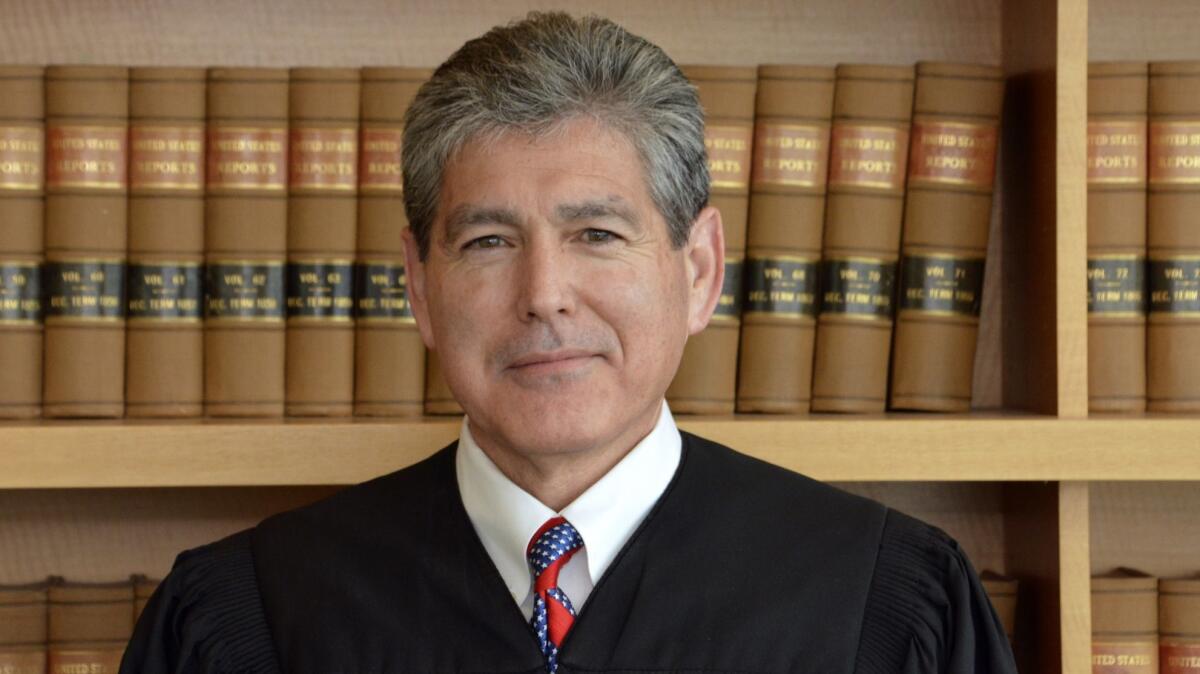Court hearing focuses on speedy family reunification

Reporting from San Diego — Attorneys for the U.S. government and immigrant families who were separated at the Mexico border discussed how to accelerate the reunification process during a hearing Friday in San Diego.
The Trump administration has been under increasing pressure to speed up the process following allegations that three youngsters were sexually abused while in U.S. custody. The government of El Salvador said the three, ages 12 to 17, were victimized at shelters in Arizona. Most of the 2,600 children who were separated from their parents last spring before the administration agreed to stop the practice have been reunited, but hundreds remain apart more than a month after a deadline set by U.S. District Judge Dana Sabraw in San Diego.
In trying to reunite families, the Trump administration has put the onus on the American Civil Liberties Union, asking that the organization use its “considerable resources” to find parents in their home countries, mostly Guatemala, El Salvador and Honduras. The governments of those countries and nonprofit organizations have been trying to locate the families. Those efforts have included posting public notices and putting hotline numbers on billboards in the hope that a parent missing a child might see the signs and call.
“Every day that these children are separated and left in government facilities does more damage,” Lee Gelernt, an ACLU attorney representing separated families, said during the hearing Friday. “Even if the facilities were palaces, the separation of young children from their parents causes potentially permanent trauma.”
Gelernt told Sabraw that as many as 200 cases could be resolved in the next week or two. Those include families who want to be reunited in their home countries and those who want to waive their right to reunification and keep their child in the United States to pursue asylum.
The judge said the administration also can expedite cases in which families have expressed the desire for the child to be sent back, without worrying about violating a temporary halt on deportations of families seeking asylum.
Justice Department attorney Scott Stewart said the government wants to remove any roadblocks.
“There are a lot of folks that want to move forward with reunification,” he told the judge.
More than 300 parents who have been deported are waiting for their sons and daughters to be returned to them in their homelands. Many are growing increasingly anxious.
Among them is Evelin Roxana Meyer, whose 11-year-old son, Eduardo Almendarez Meyer, was recently told that he won’t be leaving the U.S. until Nov. 27. He has been held at a government-contracted shelter in Brownsville, Texas, since being separated from his father in early June.
The boy’s mother said her husband was told when he signed his deportation papers that his son would be waiting for him in Honduras.
“Now it’ll be six months before we see him? Oh my God,” Meyer said Friday, crying during a telephone interview from her hometown of La Union. “I don’t know why it’s taking so long. My son is worried. He tells me, `More time here, Mommy? Oh, no. Why?’ I don’t know what to tell him.”
More to Read
Sign up for Essential California
The most important California stories and recommendations in your inbox every morning.
You may occasionally receive promotional content from the Los Angeles Times.









